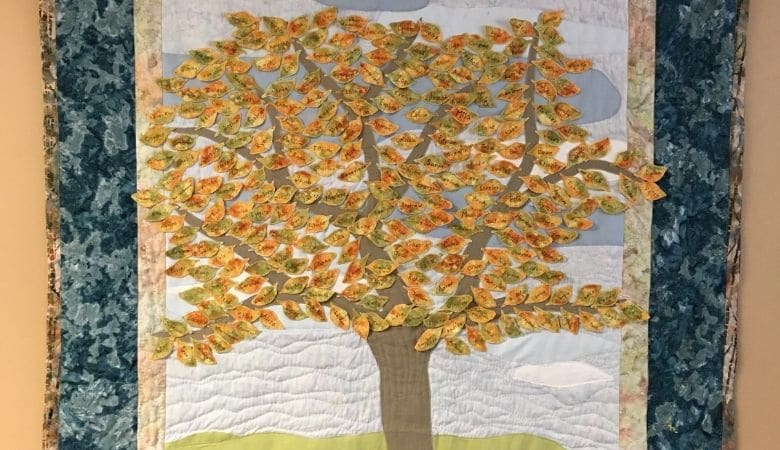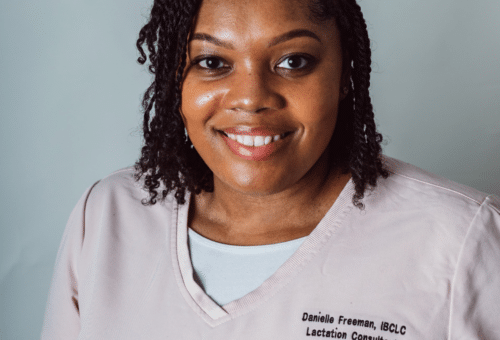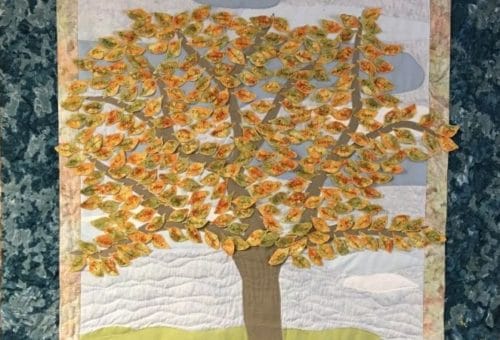
Memorial quilt honoring the babies of bereaved milk donors
In October, Pregnancy and Infant Loss Awareness Month, we honor and support those whose babies have died before or shortly after birth. Miscarriage, stillbirth, and infant mortality affect thousands of families each year. In many countries and cultures, including the US, such losses are often hidden from public view. Friends, family, colleagues, and health providers expect parents to “get over” the loss, “move on” with their lives, and “try again” to have a baby. Lois Tonkin devoted her career to understanding and supporting those experiencing grief, particularly parents. “People tend to believe that grief shrinks over time. What really happens is that we grow around our grief.” Like all growth, growing around grief is a lifelong process that cannot be rushed or put on a schedule. It can, however, be aided, supported, enriched by friends, colleagues, family members, and public policies that acknowledge the loss and the grief.
Supporting growing around grief
We all know people who have lost an unborn or recently born child, though we may not know who they are. Creating space in our communities and our cultures for acknowledging and supporting those who have suffered such a loss benefits all of us.
When a child of any age dies, parents seek meaning in the loss, in the life of their beloved child. Parents often donate their time and other resources to organizations related to their child’s illness and cause of death, or their children’s interests. In perinatal loss, there are no memories, experiences, skills, and talents in which to find special meaning. There are no special interests to remember, and often no illness to cure or safety risks to prevent. Many families find that donating milk to help other babies survive where their baby did not has enormous meaning and comfort.
Educating ourselves and others during Pregnancy and Infant Loss Awareness Month and Remembrance Day, and whenever the occasion arises, will help to lift the secrecy and shame. Milk banks are honored to support these families and to contribute to opening this painful and sometimes taboo topic to public discussion.
Perinatal loss in public policy
Breastfeeding in the workplace
According to the US Fair Labor Standards Act, employers are required to provide “reasonable break time for an employee to express breast milk for her nursing child for 1 year after the child’s birth . . . ” (italics added). In many locations, this has been interpreted to mean that only mothers nursing their own babies fall under this statute. Gestational carriers and bereaved parents donating milk are not included. Those who have milk to give and no baby to feed are saving lives and supporting health of others, as they are finding meaning in the life of their child. How best to help?
Inquire in your workplace, union, state, county, municipality about their policies. If pumping for donation after loss is not explicitly supported, what is the process for incorporating them into human resources policies, government regulations, union negotiations?
Parental leave after loss
There are no standards in the US for parental leave after loss. When a baby dies, the parents are still parents. The birthing mother still has the physical postpartum recovery and parents must still adjust emotionally and practically to being parents—without a child. It is time for unions, corporations, legislators, and labor regulators to consider paid parental leave, even if the baby has died.
Most babies are born full term and healthy, and not all bereaved parents choose to remember their babies though milk donation. So, the impact on any one workplace at any time will be minimal. However, the impact on affected parents is enormous. Even if the policies are never needed, the compassion demonstrated will ripple out to other policies and practices.
To all who have suffered perinatal loss, we extend our condolences and offer our support in whatever way and whenever it is meaningful for you.
Naomi Bar-Yam, PhD, ACSW, is available to speak at conferences, hospitals, and community organizations on perinatal loss, milk banking, and many other topics. Visit her speaker profile on LactSpeak.








